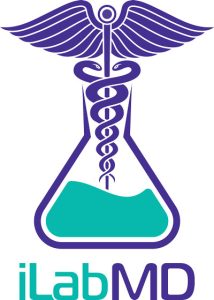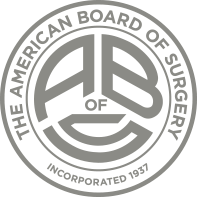Hormonal Health
When Conventional Medicine Fails, there is a Functional Medicine Approach at iLabMD
The Power of Personalized Functional Medicine
Understanding the Importance of Initial Consultations
As the world of functional medicine expands, it’s crucial to understand that while you may be tempted to request a lab test without an initial consultation, everyone is unique. The same test that worked wonders for a friend might not be beneficial for you. That’s why at iLabMD, we stress the importance of an initial consultation before proceeding with any testing.
Let's Get to Know Each Other
Understanding you and your unique lifestyle is the cornerstone of curating a treatment plan tailored to your body. Our team of experts are your partners in your journey towards a healthier future.
Know Which Test You Need?
Bypass our initial consultation, order one of our comprehensive tests today and gain crucial insights into your health with our 1-hour, post-test interpretation.
Get To Know Dr. Maria Azizian
Want to know more about the expert guiding your health journey?
Discover the passion, expertise, and commitment that Dr. Maria Azizian brings to your healthcare.
Why the Initial Consultation Matters
During the initial consultation, you'll have the opportunity to discuss your symptoms and health goals with our medical providers. This dialogue helps us guide you towards the necessary tests and away from those that might not be useful in your specific case. We recommend sending us your latest blood work via our HIPA protected portal prior to your initial appointment to give our physicians a better understanding of your health.
Empower Your Wellness Journey With Personalized, On-Demand Healthcare
- Harness Your Health at Home
- Painless Testing with Urine or Saliva
- Blood draw not required for most tests
ORDER ONLINE NOW
Hormonal Health Test
Includes DUTCH COMPLETE TEST by Precision Analytical. This test measures a wide range of hormones, including cortisol, cortisone, estrogen, progesterone, testosterone, melatonin, DHEA-S.

Booking Provided by Healthie
The Process of Testing
After the initial consultation and ordering of labs, it typically takes 2-4 weeks for results to come in. Once received, we’ll schedule a review of the results and a treatment recommendation session with the provider.
Please note that occasionally, phlebotomy (blood draw) is needed. In such cases, we will find a lab near you or arrange a mobile phlebotomy technician to come to you. An extra charge ($30-$100) will be applied depending on the phlebotomy service.

Real Results in 5 Easy Steps!
Test results in 2-4 weeks depending on the complexity of your test.
1
Order The Test Packages Online
2
Complete Tests In The Comfort Of Your Home
3
Mail Your Test Specimen to the Lab
4
Receive Your Scheduling Link Once Results Are Available
5
Attend Your Telemedicine Session to Discuss Results
For best results, an initial consultation with a trusted professional is strongly recommended
During the initial consultation, you'll have the opportunity to discuss your symptoms and health goals with our medical providers. This dialogue helps us guide you towards the necessary tests and away from those that might not be useful in your specific case. We recommend sending us your latest blood work via our HIPA protected portal prior to your initial appointment to give our physicians a better understanding of your health.
Learn More About Hormonal Health & Testing
“Adrenal fatigue” is a term used in some alternative and complementary medicine circles to describe a collection of symptoms that are attributed to chronic stress and overworking of the adrenal glands. However, it’s important to note that the concept of adrenal fatigue is not widely accepted in conventional medicine, and there is limited scientific evidence to support its existence as a distinct medical condition. Instead, conventional medicine recognizes conditions such as adrenal insufficiency (Addison’s disease) and other disorders of the adrenal glands.
That said, in functional medicine and some holistic healthcare practices, adrenal fatigue is often associated with a cluster of symptoms that may include:
– Persistent fatigue
– Difficulty waking up in the morning
– Frequent infections
– Cravings for salty or sweet foods
– Difficulty handling stress
– Anxiety and mood swings
– Sleep disturbances
– Digestive issues
– Reduced ability to concentrate
The proposed mechanism behind adrenal fatigue is that chronic stress can lead to dysregulation of the hypothalamic-pituitary-adrenal (HPA) axis, which controls the body’s stress response and the release of hormones, including cortisol, from the adrenal glands. This dysregulation is believed to result in decreased cortisol production, leading to the symptoms associated with adrenal fatigue.
In functional medicine, treatment approaches for adrenal fatigue, as defined in this context, typically include:
Stress Management: Addressing chronic stress is considered a primary focus. Techniques such as mindfulness, relaxation exercises, yoga, and meditation may be recommended to help manage stress levels.
Balanced Diet: Nutritional recommendations often emphasize a balanced diet that includes whole foods, adequate protein, healthy fats, and nutrient-dense carbohydrates. Some practitioners may also suggest dietary changes to stabilize blood sugar levels.
Supplements: Certain supplements, such as adaptogens (e.g., ashwagandha, rhodiola), vitamins (e.g., B vitamins, vitamin C), and minerals (e.g., magnesium, zinc), may be recommended to support adrenal health. However, supplementation should be individualized and guided by healthcare providers.
Lifestyle Modifications: Lifestyle changes, including improving sleep quality, establishing a regular sleep schedule, and incorporating regular physical activity, may be advised.
Limiting Stimulants: Reducing or eliminating stimulants like caffeine and refined sugars is often recommended to prevent further stress on the adrenal glands.
Hydration: Ensuring proper hydration is essential for overall health, including adrenal function.
It’s important to emphasize that adrenal fatigue is a controversial concept, and its diagnosis and treatment are not universally accepted within the medical community. Additionally, the symptoms associated with “adrenal fatigue” are nonspecific and can be caused by a wide range of medical and psychological conditions. Therefore, individuals experiencing persistent fatigue or related symptoms should seek evaluation and guidance from a qualified healthcare professional, who can provide a comprehensive assessment and determine appropriate treatments based on evidence-based medical practices.
In functional medicine, female hormonal health is approached holistically, focusing on the intricate balance and interplay of hormones in the female body. Here’s an overview of how female hormonal health is addressed:
- Holistic View of Hormones: Functional medicine considers the entire hormonal milieu, including estrogen, progesterone, testosterone, thyroid hormones, and adrenal hormones like cortisol. The balance and interaction of these hormones are crucial for overall health.
- Root Cause Analysis: Instead of just treating symptoms, functional medicine seeks to identify and address the underlying causes of hormonal imbalances. This can include factors like stress, diet, environmental toxins, and genetic predispositions.
- Lifestyle and Diet: Significant emphasis is placed on lifestyle and dietary changes to support hormonal balance. This includes a nutrient-rich diet, regular exercise, stress management techniques, and adequate sleep, all of which can have profound effects on hormonal health.
- Gut Health: The gut plays a crucial role in hormonal health. Functional medicine often focuses on improving gut health through diet, probiotics, and treatment of gut infections or dysbiosis, recognizing its impact on hormone metabolism and detoxification.
- Environmental Factors: Exposure to endocrine disruptors and environmental toxins is addressed, as these can mimic or interfere with hormone function.
- Stress Management: Chronic stress can profoundly impact hormonal balance, particularly the production of cortisol and its effect on other hormones like progesterone. Functional medicine often incorporates stress reduction techniques and support for adrenal health.
- Individualized Treatment Plans: Treatment is highly individualized, based on a thorough assessment of hormonal levels, lifestyle, and other health factors. This can include nutritional supplements, herbal medicines, bioidentical hormones, and other therapies tailored to the individual’s needs.
- Comprehensive Testing: Functional medicine relies on comprehensive testing to assess hormonal levels. This can include blood, saliva, and urine tests, such as the DUTCH test, which provides detailed insights into hormone metabolites.
- Menstrual Cycle Tracking: Understanding the menstrual cycle is key. Women might be encouraged to track their menstrual cycles, noting any symptoms or irregularities, to better understand their hormonal patterns and imbalances.
- Collaboration with Other Therapies: Functional medicine often works in conjunction with conventional medicine and other therapeutic approaches to provide comprehensive care.
In summary, functional medicine approaches female hormonal health by looking at the body as an interconnected system, focusing on diet, lifestyle, environmental factors, and stress management, while using comprehensive testing to create personalized treatment strategies.
In functional medicine, male hormonal health is approached with a comprehensive and holistic perspective, focusing on the entire endocrine system and its influence on overall health and well-being. Here’s an overview of how male hormonal health is addressed:
- Holistic Understanding of Hormones: Functional medicine considers all hormones that can impact a man’s health, including testosterone, estrogen (yes, men have it too), cortisol, thyroid hormones, and insulin. The balance between these hormones is key to optimal health.
- Root Cause Identification: The focus is on identifying and addressing the underlying causes of hormonal imbalances, which can include lifestyle factors, diet, stress, environmental toxins, and underlying health conditions.
- Lifestyle and Dietary Interventions: Emphasis is placed on lifestyle changes to support hormonal balance. This includes a nutrient-rich diet, regular physical activity, stress management techniques, and adequate sleep. These factors significantly impact hormone production and regulation.
- Stress and Adrenal Health: Chronic stress can lead to imbalances in cortisol levels, which can impact other hormones, including testosterone. Managing stress and supporting adrenal health are often key components of treatment.
- Gut Health: Functional medicine recognizes the gut’s role in hormonal health, including hormone metabolism and the elimination of excess hormones. A healthy gut microbiome is essential for optimal hormonal balance.
- Environmental Toxins: Exposure to endocrine-disrupting chemicals in the environment is addressed, as these can mimic or interfere with natural hormone functions.
- Comprehensive Testing: Advanced testing methods, including blood, saliva, and urine tests, are used to assess hormone levels and their metabolites. This helps in understanding the specific hormonal imbalances and their impact on health.
- Individualized Treatment Plans: Based on a thorough assessment, treatment plans are personalized. This may include nutritional supplements, herbal medicines, lifestyle modifications, and in some cases, hormone replacement therapy.
- Supporting Testosterone Levels: Specific focus is given to maintaining or improving testosterone levels, which are crucial for muscle mass, bone density, libido, and overall energy levels.
- Collaborative Approach: Functional medicine often works in conjunction with conventional medicine, integrating various therapeutic approaches for a more comprehensive care strategy.
Overall, in functional medicine, male hormonal health is viewed through a lens that considers the intricate connections between lifestyle, environment, nutrition, and the body’s internal processes, aiming to achieve a balanced and holistic state of health.
We feature the Dutch Test, which stands for “Dried Urine Test for Comprehensive Hormones”, an advanced diagnostic tool used to evaluate hormone levels. It’s more detailed than typical blood or saliva tests for hormones. Here’s a breakdown of what it involves and why it’s used:
- Method: The Dutch Test uses dried urine samples. You collect these samples at different times of the day by urinating on filter paper strips, which are then dried and sent to a lab for analysis.
- Hormones Analyzed: This test measures a wide range of hormones, including cortisol, cortisone, estrogen, progesterone, and testosterone. It also assesses hormone metabolites, which are substances produced when hormones are broken down in the body.
- Advantages: The key advantage of the Dutch Test is its ability to provide a comprehensive picture of hormone levels over time, rather than a single snapshot. This is particularly useful for understanding patterns and fluctuations in hormone levels.
- Uses: It’s often used to help diagnose and manage conditions related to hormonal imbalances, such as adrenal disorders, menstrual problems, symptoms of menopause, sleep disorders, and issues related to stress and fatigue.
- Interpretation: The results of the Dutch Test can be complex and require interpretation by a healthcare professional with expertise in hormonal health. They can use this information to recommend appropriate treatments or lifestyle changes.
Overall, the Dutch Test is a sophisticated tool for assessing hormonal health, providing detailed insights into the body’s hormonal balance and how it may be impacting a person’s well-being.
The DUTCH test measures the following biomarkers: Biomarkers
The DUTCH test, which stands for Dried Urine Test for Comprehensive Hormones, measures a range of biomarkers to give a detailed overview of a person’s hormonal balance. Here are the key biomarkers it typically includes:
- Cortisol and Cortisone: These are stress hormones produced by the adrenal glands. The test measures both the free cortisol and cortisone, as well as their metabolites, to assess adrenal function and the body’s response to stress.
- Sex Hormones: This includes estrogen (and its metabolites), progesterone, and testosterone. These biomarkers are crucial for understanding issues related to menstrual cycles, menopause, fertility, and overall hormonal balance.
- Melatonin: This hormone regulates sleep patterns and can be assessed to understand sleep disorders or disturbances.
- DHEA-S: Dehydroepiandrosterone sulfate (DHEA-S) is an adrenal hormone that is a precursor to both male and female sex hormones. It’s often measured to evaluate adrenal gland function and general health.
- Organic Acids: Some versions of the DUTCH test also include organic acids, which can give insights into levels of certain vitamins and neurotransmitters, oxidative stress, and detoxification pathways.
- Metabolites of Hormones: The test also measures the metabolites of estrogen, progesterone, and testosterone, which can provide deeper insights into how these hormones are being processed and utilized in the body.
By measuring these biomarkers, the DUTCH test offers a comprehensive view of a person’s hormonal health, which can be critical for diagnosing and managing a variety of health conditions related to hormonal imbalances.
Explore Our Test Packages
Our process begins with an initial intake consultation to define the issue and decide which tests would be beneficial both medically and financially. We guide you towards the most medically high-yield and cost-effective testing and treatment options. We ensure that the results obtained from sophisticated testing improve your health.
We believe in transparency, so there are no hidden fees with iLabMD. Our initial consultation fee is $385 for a 1-hour session. Please note that this fee does not include any tests. If further testing is required based on the consultation with the provider, you will be informed about its purpose and cost. No testing is done without your consent or payment.
The review of test results is a 1-hour session priced at $385. The timing of a follow-up visit varies depending on your condition. A 30-minute follow-up is $250. We also offer a 4 follow-up package at a discounted rate of $900, giving you a savings of $100.




